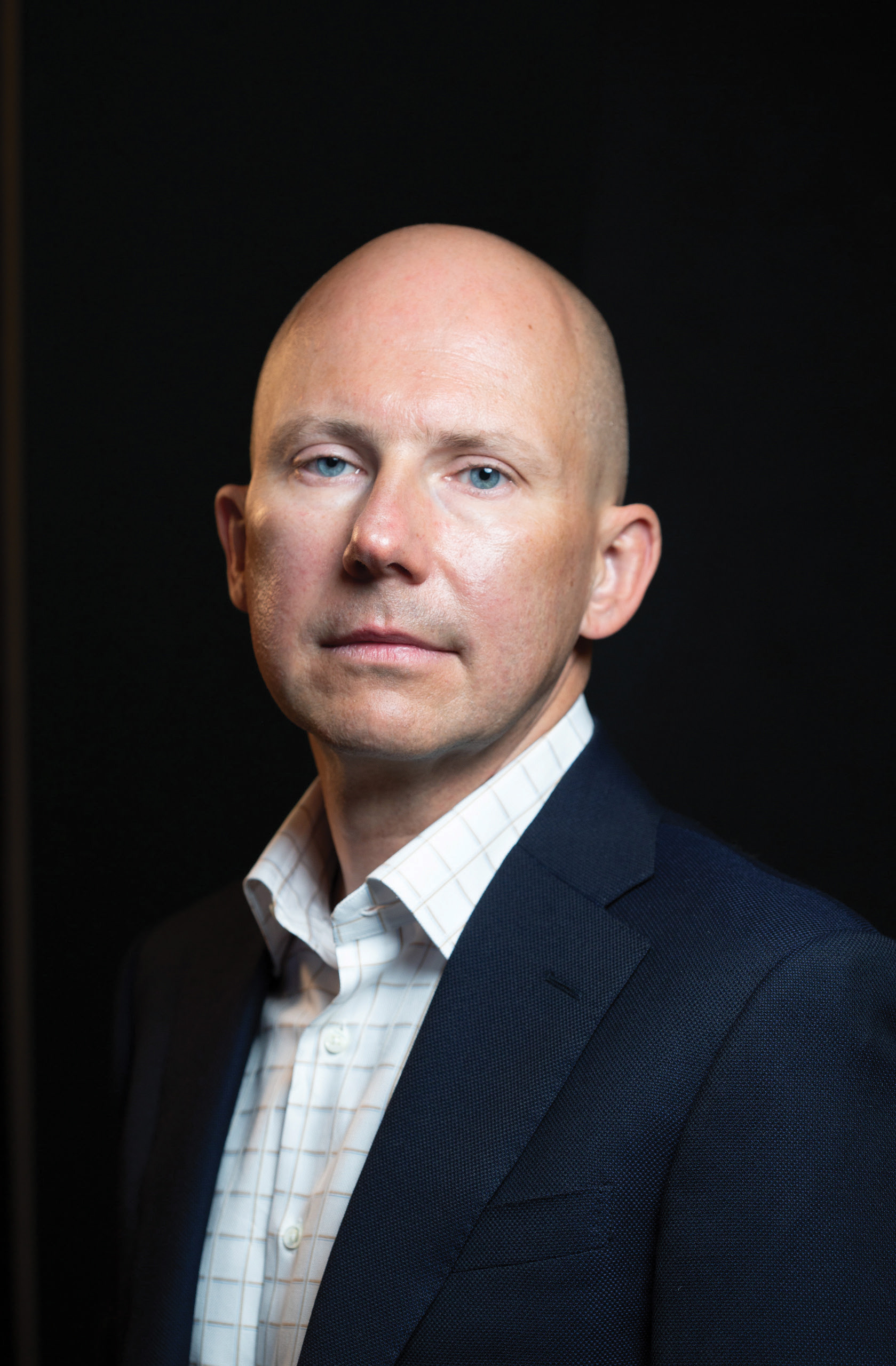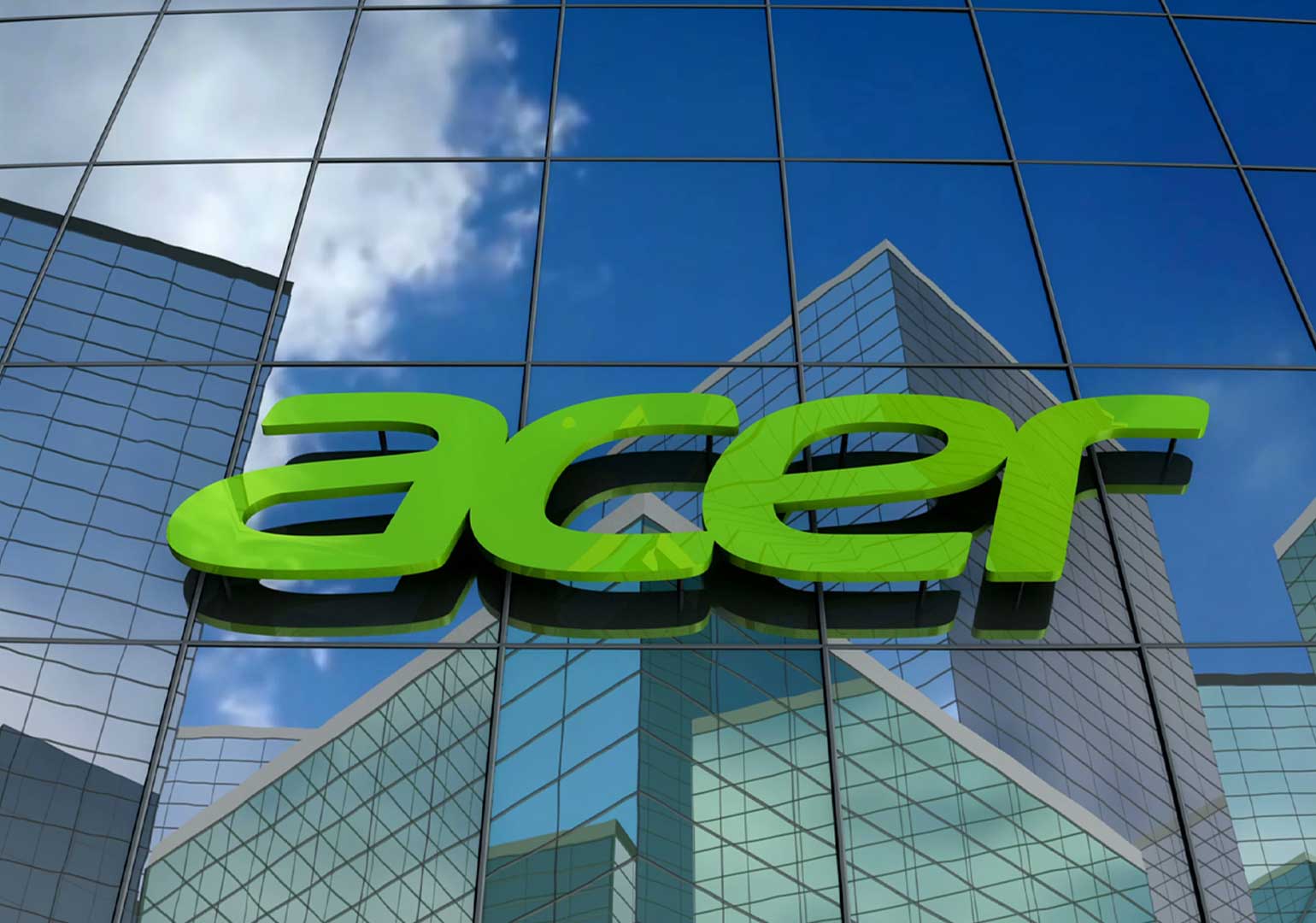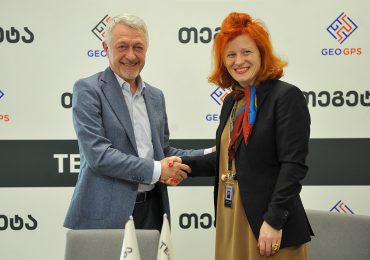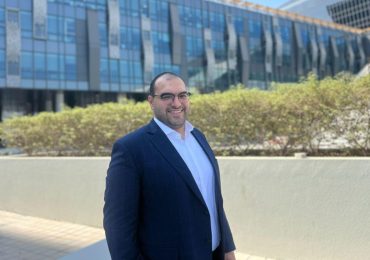For nearly fifty years, Acer has been at the forefront of technology, delivering a diverse range of products to customers worldwide, including in Georgia. As one of the largest computer manufacturers globally, Acer’s innovative portfolio goes far beyond PCs. Forbes Georgia sat down with Emmanuel Fromont, President for EMEA, and Grigory Nizovsky, Vice President of RoSSE Region, to explore the company’s cutting-edge products and ambitious future plans.
Acer is at a new stage of development. In the late 2000s, the company was one of the largest in computer sales, but since then, the market landscape has changed and new challenges have emerged. How is the company dealing with these challenges and what is changing in the brand’s approach?
Emmanuel: Acer will be 50 years old in two years. During this period, the company has gone through many cycles, different strategies, and types of management. At one time, the strategy focused on scale, but it gradually became clear that this approach was no longer compatible with the changing market dynamics. Thus, we shifted our focus to innovation and brand building.
Throughout its 48-year history, Acer has always maintained stability. Since the COVID-19 pandemic, the company has been profitable every quarter, something not every company can achieve. The stock price has also increased.
Currently, our leaders are focused on expanding the brand into lifestyle categories. Our medium-term strategy aims to establish Acer as a lifestyle brand. That’s why we are exploring new business areas that complement our portfolio. This diversification has already led to 30% of our business coming from non-computer products, and this segment is growing rapidly.
The perception has always been that of a consumer company, but actually, a significant part of our business comes from the commercial sector. Now, we want to leverage the opportunities that AIPC (Artificial Intelligence Personal Computer) creates in the commercial market. This sector has significant growth potential, and we expect it to revitalize the PC market and expand our core business.
Grigory: The market has faced some obstacles in recent years. Intense competition and fluctuating demand have changed the landscape. Since 2022, we have seen declining demand. However, despite these challenges, Acer remains a prominent PC manufacturer, especially in regions such as EMET (Europe, Middle East, and Turkey), where our PC business continues to dominate.

Which market is currently the most important for the company?
Emmanuel: The PC business still accounts for about one-third of our global revenues. While in EMEA, PCs still represent the biggest part of our business, subsidiaries based in Asia—Taiwan in particular—derive their revenues from non-PC businesses, with projects such as Smart City initiatives or those related to medical equipment.
The market in Western Europe is relatively mature and highly competitive. However, through strategic investments, we maintain a significant market share. We are strengthening our positions in the Middle East and Africa, as well as in Eastern Europe, such as Georgia and Kazakhstan.
In Georgia, we consistently win some of the largest education tenders in Europe. Last year, we won a significant education tender in Croatia too. Turkey was also an increasingly growing market in 2023. These successes highlight the region’s growth potential.
Acer ceased operations in Russia after the war. How do you plan to replace this market?
Grigory: We can’t talk about replacement, but we aim to boost our growth in other countries with high potential such as the Middle East and Africa. This means increasing sales, resources, acquiring more partners, and building business relationships with government institutions. In terms of production capacity, we are adequately equipped to meet demand, so winning tenders or securing contracts does not pose logistical challenges.
Who is Acer’s typical customer and target audience?
Emmanuel: The trend has changed over time. For example, we weren’t the first in the gaming category at the start, but our Predator and Nitro lines changed the perception of the brand and shifted the focus from value-oriented to quality-oriented gamers. This transformation has helped us attract Gen Z, the youth, and today gaming has the largest share in our portfolio.
Then there were Chromebooks. Although they are more popular in the US, awareness is also growing in Europe, especially in the education sector, among students and young people. Acer was the first to introduce Chromebooks to Europe and has maintained the lead ever since.
Similarly, Acer is considered a trusted brand in the Small and Medium Business sector when it comes to professional solutions, and we are also leading in education marketing. These pillars, along with a focus on lifestyle products, have changed the trajectory and image of the brand. Today, Acer is no longer just a brand with a Windows ecosystem but one that appeals to diverse, trendy demographics and emphasizes differentiation.
Acer has a diverse portfolio for pupils, students, professionals in education, healthcare, and so forth. In what direction can we expect the company to expand in the future? Are you planning to enter the electric car market?
Emmanuel: Electric cars are currently not part of Acer’s strategy, as they require different expertise and resources. However, we have innovated in the e-bike market by equipping e-bikes with artificial intelligence. Acer’s goal is to explore adjacent markets where it can use its technologies and know-how. For example, improving portable batteries and optimizing battery performance in notebooks is a step towards enhancing the user experience. Education and gaming remain crucial segments, and we plan to integrate AI in these areas as well. The cornerstone of Acer’s strategy is to provide customers with innovative and reliable products.
Grigory: Expansion into visualization devices is another area of interest, including not only Predator SpatialLabs™ 3D monitors, which are a new frontier in gaming, but other technologies as well.
Acer products have been successfully sold in the Georgian market for years. You cooperate with the Ministry of Education and win tenders steadily. Why is this market important to you and what are your plans for the future?
Emmanuel: While facing competition in the region, Acer sees growth opportunities here as well, including in corporate tenders, as it is easier to position ourselves in this dynamic environment. Despite having only six staff members and limited resources in Georgia, we are prepared to expand our product range and allocate additional resources in the future. Georgia holds significant importance for us, and we anticipate further market development in this region.
Grigory: Georgia has historically been a strong market for us in the non-consumer business sector. Last year, Acer’s revenue in Georgia totaled more than $30 million, with over $25 million coming from non-consumer projects and government purchases. Procurement processes and tenders for IT products in Georgia are very transparent, which suits us well. We also have a strong and reliable partner in the country. Given the current scale of our business, we can prioritize shipments to Georgia within Acer.
What products are commonly preferred by consumers in Georgia?
Grigory: Besides traditional PCs, gaming computers are popular here, though not as dominant as in Turkey and Kazakhstan. Additionally, Georgia is a good market for non-computer products. For example, the scooters we launched in 2024 are quite popular. Throughout history, Georgia has demonstrated a strong interest in innovative technologies as well.
Artificial intelligence is transforming our lives and productivity. What role does AI play for Acer, and how is the company capitalizing on this opportunity?
Emmanuel: We are at the dawn of AI. Despite significant success, the market for AI-powered computers is still relatively untapped. Acer introduced its first official AIPC about six months ago, so their sales are still modest. AI is gradually being integrated into various areas, including gaming, productivity tools, and ISVs. When customers experience the benefits of AIPC, such as improved productivity and security, and our new TravelMate AI laptops, they may never want to go back to traditional PCs. These changes will greatly accelerate the development of computers and potentially revolutionize the PC industry.

Due to climate change, the transition to a green, sustainable economy is becoming increasingly urgent, and the actions of individual companies play an important role. What initiatives has Acer undertaken to align with global efforts towards achieving carbon neutrality by 2050?
Emmanuel: We are fully committed to this cause and not waiting for 2050. We have been working towards sustainability for more than a decade. Our goal is to achieve carbon neutrality by 2035 and transition to fully renewable energy. We have already made significant progress in this regard.
Recognizing the broader scope of sustainability, Acer emphasizes that achieving it involves not only its own operations but also encompasses the entire supply chain, spanning production, transportation, and processing stages. That’s why we implemented initiatives like Earthion and created a website to provide transparent updates on our progress.
Proud to stand as industry leaders in sustainability, Acer’s commitment is evident in our products, which incorporate recycled materials, with some devices containing up to 60-70% recycled content. Recognizing sustainability as vital for long-term business viability, our focus remains on battery optimization and energy-reduction practices in product development.
How do you envision the future of Acer?
Emmanuel: We’ll maintain a strong commitment to the professional segment, targeting vertical markets such as education, healthcare, digital signage, and AI. In fact, we expect AIPC to create significant opportunities for the company’s development. Simultaneously, we see huge potential in emerging markets. By leveraging these markets, we can sustain our growth trajectory and capitalize on untapped opportunities. Last but not least, we will continue investing in lifestyle and mobility products to diversify our business and enter new market segments.
Grigory: Artificial intelligence will play an important role in shaping the future of technology and will likely revolutionize various productivity sectors. Accordingly, Acer will continue to innovate in this area and further diversify its products. We believe that by effectively implementing new strategies and accelerating technology adoption, the company has a bright future.

















